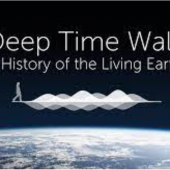
Abstract: At Schumacher College, Dartington, UK in 2008 we introduced the Deep Time Walk – a transformative learning experience in which college participants walk 4.6km in the countryside of the Dartington Estate representing the entire 4,600 million years of our planet’s history. The aim of the walk is to increase the ecological awareness of participants by giving them an embodied experience of the immense age of our Earth. At certain points during the walk a facilitator explains key events in earth history, such as the formation of the planet and the first appearance of living cells. Here we assess the effectiveness of the Deep Time Walk offered to eleven distinct groups of walkers during 2022 -2023. Participants on each of the eleven Deep Time Walks were asked to respond to a simple questionnaire asking them to quantify how much of seven qualities they felt immediately before and immediately after their walk (these were: Awe and Wonder, Sense of Earth’s Ancientness, Connection to Nature, Consequences of the Crisis, Hope, Commitment to Personal Change and Commitment to Political Change) . In total, 153 participants took part in the eleven walks and responded to the questionnaire. Analysis of the data showed a highly statistically significant increase across all seven qualities (p<0.00001 for each quality), suggesting that the Deep Time Walk is an effective means for developing and enhancing ecological awareness and commitment to action in these times of severe global crisis. Qualitative data were not collected during this phase of the study due to time limitations during walks. We recognise the importance of this kind of data and are devising ways of gathering it for both past and future walks.
Continue Reading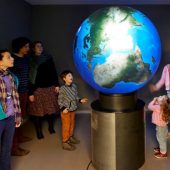
Abstract: This paper reports part of a larger study on the development of systems thinking skills in German 7th grade comprehensive school students regarding the climate. Research has shown a fragmented understanding of climate change among students that hardly accounts for the dynamic interrelations in the climate system and may pose a barrier in understanding adaptation and mitigation strategies (Shepardson et al., 2017, 2011, Calmbach 2016). While much is known the impact of short-term interventions on the general system understanding of students, what is lacking to date is 1) a specific intervention on climate system understanding and 2) insights into the process of developing system understanding in students. Helpful insights in this context come from Conceptual Development theories for they allow the development of systemic thinking to be viewed in terms of conceptual expansion or conceptual change. Starting from these desiderates, a teaching-learning sequence was developed based on the SYSDENE model of system competence (Frischknecht et al. 2008). In the sequence young learners systematically link experiences from formal science education with the experiences at three non-formal learning environments. A mixed-methods approach was used to explore the impact of this 3-month sequence on 19 7th grade students. A written pre-/post-test suggested a significant improvement in Climate System Reconstruction for the group (pre-test Median = 6.75 vs. post-test Median = 12.5, Wilcoxon Test: p = .003, r = .82). However, a qualitative analysis of classroom conversations, interviews and concept maps indicated that cognitive development toward a higher level of system thinking was neither continuous nor did every student reach it. Moreover, the SYSDENE model’s Competence Area “Describe System Model” proves critical. Being able to describe the main climate system factors is not sufficient, one also needs to be able to distinct weather from climate and grasp several scientific concepts related to the climate (e.g. greenhouse effect, water cycle, evaporation, reflection) in order to understand climate as a system.
Continue Reading
Abstract: The contribution first outlines the state of research on the relatively new Fridays for Future (FFF) movement and categorises first studies particularly from a German perspective, to provide a basis for a further differentiation in this field of research. In this context, fundamental aspects of the movement are presented. The self-concept of the German Fridays for Future movement in terms of a young protest movement with a global orientation is then compared against the educational tasks stipulated in the school legislation of the federal states (Bundesländer) with their societal-educational objectives. The contribution focuses on the question in how far the self-concept of the German branch of the FFF movement as an international protest movement and the activists’ engagement for climate protection and political participation is reflected in the educational objectives stipulated in school legislation. Statements are analysed regarding climate and environmental protection, participation and democracy and transnational references in the school legislation. A link can be found between the self-concept of the Fridays for Future movement and school legislation, but this does not resolve the conflict between the school strikes and compulsory schooling – a conflict that is intended by FFF to highlight the perceived urgency of the cause. Schools, educational administrators and educational policymakers are thereby urged to take a stance.
Continue Reading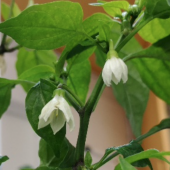
Abstract: To successfully implement the UN’s Sustainable Development Goals (SDGs), we must encourage all citizens to work together to enable a good life not only for us now but future generations too. In this article, we present an experiment carried out in autumn 2020 on a smart aeroponic garden. The goal of the experiment was to learn more about aeroponic cultivation and IoT technology and to acquire the know-how that would enable the participants to influence the environmental burden of food production. Our experiment showed that technology could also be used to introduce sustainable development themes to reach those target groups whose attention could not be attracted through other methods.
Continue Reading
Abstract: After 20 plus years as a sustainability educator, the author had one of those lie-awake-at-night-staring-at-the-ceiling experiences where she faced some hard questions about the state of the world. In this article, describes her subsequent journey investigating the role of listening in shifting to a life-sustaining society and her Ph.D. research into how to support listening across differences to address complex social-ecological challenges.
Continue Reading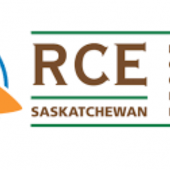
Abstract: Three decades ago Julius Nyerere (1990) wrote Challenge to the South. In response to the legacy of colonialism, Nyerere challenged the nations of the Global South to advance their development and to free their people. These concerns are as relevant today as they were in the 1990s. Established for the United Nations Decade of Education Sustainable Development in 2005, there are now over 175 Regional Centres of Expertise (RCEs) on Education for sustainable Development (ESD). This paper offers a case study of RCEs worldwide with a particular focus on challenges, and responses, including a focus on the select Sustainable Development Goals (SDGs) of poverty and health. Further, an account is given of RCEs which have attended to the recognition of Indigenous and traditional ways of knowing.
Continue Reading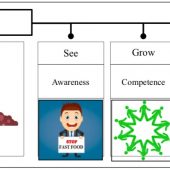
Abstract: The impact of school gardening on nutritional attitudes and behavior regarding purchase and consumption of food is explored with pupils who participated in school gardens. The researchers of the recent study conceptualized a framework of potential factors influencing nutritional behavior based on empirical data with pupils from general and vocational high schools in Vienna. Three hundred and sixteen pupils, aged between 16 to 21, were interviewed in a cross-sectional study. The pupils who participated in school gardening are significantly better informed about sustainability than the pupils who did not. There is a significant difference between pupils who took part in school gardening and those who did not, regarding their self-assessment towards their connection to nature and sustainability. The total consumption of vegetables has increased within the families of participating pupils by 17%. School gardening seems to promote pupils’ reflection on their own diet as well as foster a favorable attitude towards a healthy and sustainable diet. We conclude that the implementation of school gardening has a significant positive impact on pupils’ attitude and behavior towards sustainable diets.
Continue ReadingSince a curriculum represents a selection of socially constructed knowledge, it should be interpreted as a stake-holder in an ideological process. It is a political issue whose forms depend, among other things, on the degree to which education systems are centralized. Today, supranational bodies can influence the curriculum, particularly within the framework of UNESCO’s implementation of the decade of Education for Sustainable Development (ESD). Consequently, examining the curricula associated with the emergence of ESD involves examining the politics underlying them, politics which are not always explicitly stated – hence the interest in the concept of a hidden curriculum. The purpose of this study is to analyze the ESD curriculum in France. To this end, we use a methodology that considers the main work conducted about ESD in the framework of French research programs and based on the concept of hidden curriculum. This requires performing a diachronic analysis of changes in curriculum choices and forms of schooling, and identifying the value system underlying those changes. We identify several of the main characteristics of those changes, including in terms of project dynamics, partnership, transdisciplinarity, the role of knowledge, the distance from practice, and the persistence of a western conception of development. We then situate the French specificities within the international context.
Continue Reading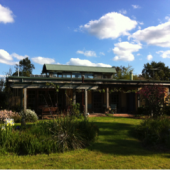
Wheeler JSE March 2017_Future Casting Issue PDF Abstract: Theories of sustainable architecture that address sexual difference are rare in an architectural context, whether in the United States or Europe, and this paper proposes a critical perspective on architectural design using sustainable schools as an example and adopting the question of sexual difference. Informed by the […]
Continue Reading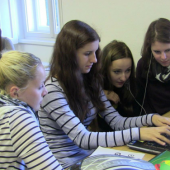
Abstract: The aim of this case study was to develop, apply and evaluate a science-education workshop format to communicate climate change to young people. Based on current theory in climate change communication and Education for Sustainable Development, the workshop has been applied in different contexts with more than 300 children and teenagers. A specification of the consecutive steps should help practitioners to use the workshop in their contexts. While results of the application of the workshop should give an insight into what can be expected from the workshop, an impact assessment of the participants who took place in the workshop outlines the effects it has on students. This paper does not only provide hands-on advice on how theoretical climate change communication knowledge can be translated into action, it also outlines the impacts of the described workshop.
Continue Reading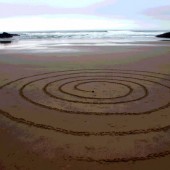
Stakeholders have become increasingly vocal about companies’ sustainability impacts, and corporations have responded by issuing sustainability reports that discuss and gauge performance metrics for a variety of social and environmental dimensions. These corporate sustainability reports are public domain and contain a wealth of longitudinal data that could be used by stakeholders, including educators and students. However, these reports appear to be vastly underutilized due to insufficient knowledge of and skills for assessing corporate sustainability information. This article presents the SPA (Sustainability Performance Assessment) System (Paun 2015), an educational tool for mentoring students in corporate sustainability performance research. The Global Reporting Initiative’s (GRI) G4 framework forms the model underlying SPA. A student learning outcomes survey reported that 96% of the respondents said the SPA System reduced sustainability report complexity through enhancing their sustainability knowledge and/or analytical skills. More specifically, student feedback indicated an increased understanding of sustainability both as a concept and from a business perspective, and the improved ability to assess and compare corporate sustainability performance based on sustainability report information and data.
Continue Reading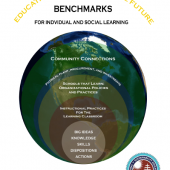
This document is a provisional draft that has emerged out of an initial “State of the Field” issue and database, published in JSE in 2014 and a follow-up conference in Winter of 2015.
Jaimie Cloud of the Cloud Institute has been the lead organizer and author of this document. See the opening pages for the large number of additional contributors.
A process for comment and revision will be announced during Spring/summer 2016.
Continue Reading
This paper describes a group of mountain museums set amidst the Eastern Alps and the Dolomites, considering their significance for the cultural identity, heritage education and sustainable tourism in South Tirol. The importance of the Mountain Museums is analyzed in connection to their setting and to the development of the communities in the area. The exhibits are analyzed considering their role in the construction of a regional identity and in the education towards the appreciation and preservation of the natural and cultural heritage of mountains, locally and worldwide. For the purpose of this research, the author visited the six buildings belonging to the net of the Messner Mountain Museum and she conversed with the director, Mr. Reinhold Messner, who is often credited as the most remarkable alpinist in history.
Continue Reading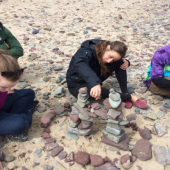
Environmental Study of Sustainable Places is a pedagogical experiment in multi-disciplinary curriculum development on several levels: 1) we integrated our multidisciplinary backgrounds in the social sciences and the humanities—political science and international relations with art and aesthetic education—to develop and co-teach these half courses; 2) student learning outcomes, course requirements, interactions and collaborations, multimedia texts (that can range from journal essays to Ted talks to articles from international press to images of environmental artists), and out of class projects, promote interdisciplinary learning; 3) the semester course confronts borders and boundaries of static college curriculum around sustainability as we examine global and local understanding of sustainability, which is a pre-requisite for a residency at the University of Wales Trinity Saint David where students crossed international borders and boundaries to conduct research of sustainable policy and enculturation in Wales, United Kingdom. Students attended interdisciplinary symposiums and work collaboratively with students representing different disciplines from the University of Wales; and 4) we delicately navigated the College’s curricula policy and bureaucracy to gain approval for a paradigm shift to use the concept of sustainability as a “pedagogical big idea” to assure that students would fulfill either of the Liberal Studies Curriculum requirements: Global Issues for Common Good or Artistic Experience.
Continue Reading
Too much of education, especially following the Western Enlightenment model and its increased use of scientific, quantifiable metrics, has seemed to completely forget that love and emotional intelligence have everything to do with what and how well the human child learns. In a globalizing society facing shared environmental and social crises of existential proportions, this forgotten understanding is fatal to real hopes of education for sustainability and healthy human and planetary life. Love is simply too critical an emotion to understand and incorporate into education, and it has been too long left out in the cold. But cold it has been for the human mind focusing on only rational/objective and emotion-denying forms of learning and intelligence, creating minds unmoved by the thus un-felt facts of an increasingly globally warming and more confused world.
Continue Reading
The stories we tell shape our view of ourselves and the path we take through this time of collective awakening and global turning. We have the ability to consciously choose narratives that offer realistic beacons of hope to guide our way through the Great Transition. To achieve authentic and lasting reconciliation as the foundation for our future, we require the power of love and compassion as a practical basis for organizing human affairs.
Continue Reading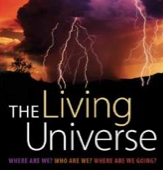
In The Living Universe: Where are We, Who are We, and Where are We Going, Duane Elgin presents a powerfully compelling argument that the most fundamental challenge facing humanity during this time of crisis is to visualize a future of great opportunity and that the foundational story guiding the reality people create on Earth is whether the universe is alive and to be loved and nurtured or dead and to be feared and consumed. This article provides a review of this powerful book with an eye to the connection between love and sustainability.
Continue Reading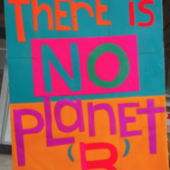
This article attempts to fill a gap in the sociological literature by detailing how I taught a sociology course ‘Society and Climate Change’. I discuss the theories I used to frame my course – Barry Commoner’s laws of nature (1976) and Patricia Hill Collin’s intersectionality (2009) – and then I present and analyze the pedagogical practices I used that attempted to put these two theories into practice by embodying connectedness through love, in order to create what David Korton refers to as an ‘earth community’ (2010).
Continue Reading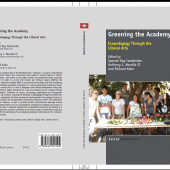
The authors review the book “Greening the Academy: Ecopedagogy through the Liberal Arts”, by Samuel Day Fassbinder, Anthony J. Nocella II and Richard Kahn, from the point of view of Environmental Education, as well as from that of Education for Environmental and Ecological Justice. The review focuses on the importance of the book for tertiary (university level) educational fields. It tries to study the parts of the book within the framework of two major axes transecting all similar – environmental or ecological or justice – educational and research fields: the axis of “old vs. new” and the axis of “local vs. global”.
Continue Reading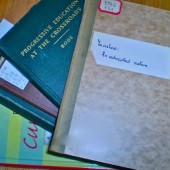
This conceptual article examines how teaching and learning has changed and continues to change as a result of the increase in cultural diversity in post-secondary classrooms. It focuses on how students’ and instructors’ culture and traditions impact the teaching and learning experience in culturally diverse post-secondary settings. Providing evidence from theoretical perspectives, this review assesses the need for and the potentially transformative nature of education that is sustainable.
English may be the lingua franca on North American university campuses, as well as on many campuses around the world, but since students and instructors come from many different backgrounds, just because English is the predominant language does not necessarily mean that education based on Western principles is the only way to do education. International students and instructors come from countries where education may be conducted differently and since the North American university system requires learning to be demonstrated in certain ways, it puts students that come from different systems at a disadvantage. Therefore it would seem that North American universities could benefit from the tenets of culturally sensitive teaching that Gay (2000) suggests as comprehensive, multidimensional, empowering, transforming, and emancipatory.
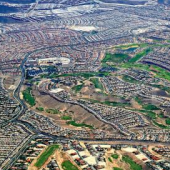
Like sprawl itself, writing about sprawl is scattered in a vast multidisciplinary literature. In this paper we provide a map of what is increasingly known about urban sprawl in emerging literature. This review of progress includes four main parts—definition, data, methods of measurement, and environmental consequences of urban sprawl. The focus of this literature review is to determine whether the aforementioned parts are elements of a connected system in which progress in any one part reflects in others, thereby enhancing knowledge of urban sprawl’s environmental consequences through a cross-fertilization with progress in how sprawl is defined, data are used, and phenomena are measured. We conclude with a discussion of areas of further research that surmounts the shortcomings of a disconnected, epistemic (knowledge) system of definitions, data, and methods, and points toward an explanation of urban sprawl’s environmental consequences. The implications for the education of urban sustainability are noted.
Continue Reading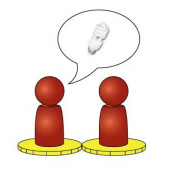
As sustainability educators and communication professionals consider various strategies to engage audiences with regard to household energy use, one option now seemingly available is to leverage social networks by encouraging people to share information with others they know. At the same time, we currently do not know enough about the potential spread of energy-related information in this fashion. Whether, when, or how people share energy-related information with peers or family members are crucial questions, for example. Using national survey data from U.S. residents (n=816), we predicted energy information sharing as a function of objective energy knowledge (measured using a factual energy knowledge index), perceived energy understanding, and demographic variables. Our analyses underscored the importance of assessing not only factual energy knowledge but also perceived understanding, as both are equally predictive of energy information sharing frequency (β=.11, p<.05, for objective knowledge and β=.11, p<.01 for perceived understanding). Number of children also predicted energy information sharing, β=.11, p<.01. We discuss the implications of these results for informal energy education efforts in the 21st century.
Continue Reading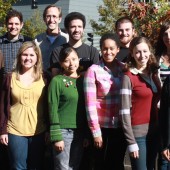
This article discusses the evolution and work of Brown University’s Climate and Development Lab (CDL). As leaders of the CDL, we engaged students in experiential education while attending the United Nations climate change negotiations in Cancun, Mexico in 2010, and in Durban, South Africa in 2011. Simultaneously, we collaborated with students to provide relevant and timely research and public scholarship oriented by the goal of advancing global justice in international climate change policy. Here we offer a conceptualization of our pedagogy for the CDL, which is a synthesis of two guiding principles: ‘engaged education’ and ‘global just sustainability’. We discuss the ways in which we organized the CDL in relation to this pedagogy and everyday logistics, and reflect upon our accomplishments and the challenges that we faced. We argue that while there are areas where we can improve upon our practice, the potential of this type of learning is considerable, and can be complementary to producing scholarly outputs that contribute to a more just and sustainable world.
Continue Reading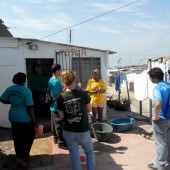
It is widely acknowledged that the sustainability challenges facing the world require new approaches to teaching and learning. At the community level, however, sustainability priorities are context specific, so prescriptions of what and how to teach for sustainability are limiting. In higher education, one innovative approach to sustainability education that acknowledges the limits of conventional coursework involves courses based on “shared action learning” – a process in which students, faculty, and community sponsors share learning experiences while working on sustainability projects for a specific community. Shared Action Learning can be applied in any community context near or far from campus ranging from the very local campus community to distant settlements across the globe. This paper describes the processes, opportunities and challenges of shared action learning through five stages: (1) project impetus, (2) contextual research and project planning, (3) community engagement and project refinement, (4) action, and (5) reflection and reporting. The roles of students, faculty, sponsors, and communities throughout the semester-long shared action learning project are explored through two examples – a course at Clark University in Worcester, MA that focuses on SAL within the college campus community and a Worcester Polytechnic Institute program through which students work on projects with partners in informal settlements in Cape Town, South Africa.
Continue Reading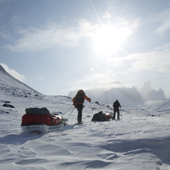
Adventure has been incorporated into sustainability education in a variety of ways, including through outdoor education and, more recently, through technology-enhanced learning. Technology has, for example, expanded opportunities for experiential learning through adventure as well as allowing learners to journey virtually along with explorers and scientists to the far-reaches of the world. This paper offers an overview of how adventure has traditionally been employed in both formal and informal education, discusses the differences between adventure education and adventure learning, shares research conducted on the role of adventure in the GoNorth! Adventure Learning Series, and advances suggestions for how adventure might be employed in sustainability education using distance, online, and mobile learning. The researchers propose the user-driven adventure learning environment (UDALE) as one model that educators and designers can draw from in both formal and informal learning settings as a means to fuse adventure, technology, and sustainability education in a pedagogically meaningful way.
Continue Reading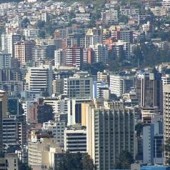
Two developing strands of a multidisciplinary literature provided an impetus for this paper: 1) the emergence of new regionalism, new urbanism, and smart codes that inform urban planning and design principles and practices for environmental sustainability, and 2) the diffusion of telecommunication and multi-media technologies that facilitate implementation of pedagogic principles in the “classroom.” The emerging urban planning and design paradigms anchor environmental sustainability issues firmly in place and space with an emphasis on the physical form of cities and regions, which, due to induced vehicular travel, is linked to greenhouse gases with consequences for climate change. Innovations that enhance learning in the classroom or the community increasingly embed and diffuse telecommunication and multimedia technologies. The intersections of urban sustainability, planning, pedagogy, and technology are briefly reviewed in this paper. It turns out that urban planning and design paradigms—particularly those with an emphasis on systemic knowledge, holistic views of both the natural and built environments, collaboration, communication, and reflective practice—synergize with environmental sustainability goals. Furthermore, these very features are ingredients for effective education for urban sustainability, particularly in conjunction with advanced telecommunication and multimedia technologies.
Continue Reading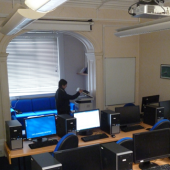
This study investigated the current energy use perceptions and practices of staff and students within five buildings at the University of Sheffield, UK. A series of focus groups with staff and post-graduate representatives from these buildings explored occupant awareness of energy consumption, perceived level of control over energy use, priorities for reduction and the perceived facilitators and barriers to reduction. Overall, personal awareness and attitudes about the need to conserve energy, the perceived actions and opinions of other users (including University authorities) and perceptions of control over the ease and opportunity to reduce energy consumption were perceived by occupants to relate to whether they would intend to conserve energy in University buildings. Recommendations for encouraging energy conservation focus on engendering greater occupant responsibility for conservation by providing a clear conservation message, participating in energy reduction schemes and providing greater energy usage information. Few papers have investigated occupant understanding of energy use in UK University and Higher Education buildings, despite large reduction targets in the sector. This paper recognises the importance that staff and student engagement will have in the successful achievement of these targets and explores their insights and perceptions.
Continue Reading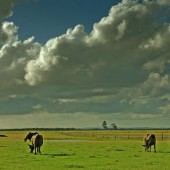
The human capacity for scientific thinking is an innate one that coexists with our ability to intuit, believe, and invent. In crafting engaging narratives that urge our readers or students to think and act rationally on behalf of our imperiled biosphere, writers who are not scientists should take care not to sustain negative stereotypes of science and scientists in their commentary, even if some of our greatest storytellers have done so.
Continue Reading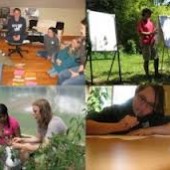
To live up to UNESCO’s definition of a sustainable development education that empowers youth with the knowledge, attitudes, motivations, commitments, and skills to solve and prevent the world’s total environmental problems, youth must be able to find meaning in the curriculum based in their own experiences and expanded through shared group experiences. An environmental-based experiential curriculum with a positive development focus can help youth reclaim their learning process and reconnect with their communities. However, without critical analysis, students, especially marginalized students, cannot develop the tools and competencies to truly understand their environment and their place within it. Linking environmental and experiential education with critical theory provides students the opportunity to develop their leadership and gain the social and cultural literacy skills needed to come in from the margins.
Continue Reading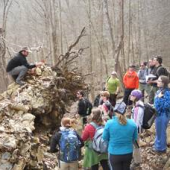
In this article I articulate what it means to understand curriculum as bioregional text. I utilize a theoretical mode of inquiry to explicate the values of bioregional education while integrating the discussion into the reconceptualized field of Curriculum Studies. The discussion addresses the value of direct experience, in our bioregion, and explains the significant contribution that can be drawn from developing a clearer understanding of our bioregional autobiography.
Continue Reading
This report describes a unique technique for presenting an introduction to sustainability science course that is both required for sustainability science majors at a large Mid-Atlantic state university and a general education non-laboratory science course. The World Scientists’ Warning to Humanity, released by the Union of Concerned Scientists in the late 1990s, serves and an indictment of humanity. The course mimics a trial as it proceeds from the indictment through an arraignment, pre-trial, trial, verdict, and sentencing with students acting both as the accused and the jury.
Continue Reading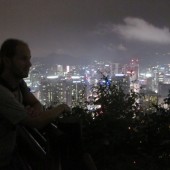
The field study (or short-term study abroad) creates a successful hybrid of study abroad and field research. These short-term educational adventures (edu-ventures) give environmental or sustainability students opportunities to gain practical knowledge while traveling domestically or overseas. In addition, it presents the opportunity for both faculty and students to extend the traditional Boyer model of scholarship, a reputable professoriate model, by developing continuity. The field study fulfills the four pedagogical goals of the Boyer model: creating research opportunities (discovery); breaking down the silos of traditional academic departments (integration); acting as consultants on-site (application); and educating students beyond the faculty members’ expertise (teaching). In addition, these field studies fulfill a fifth goal: building relationships and transgressing time (continuity). The development of this Boyer Plus model from a field-study experience serves as a tremendous tool for colleges, universities and professors to build the opportunities and necessary pedagogical skills for both traditional and non-traditional students.
Continue Reading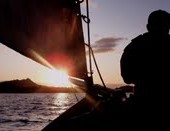
What began more than thirty years ago as a personal journey to explore my Scandinavian roots has evolved to a deep understanding of my mythopoetic connections with nature that has transformed my teaching. Through the process of exploring, learning, teaching and living in Norway, I have developed a field course for upper division students at Prescott College. From learning to sail traditional wooden boats to assisting with a harvest at a thousand year old farm, students discover the meaning of sustainability thr
ough direct experience, and how people have survived in a landscape that has directly influenced the Scandinavian cultural movements of Deep Ecology, and Friluftsliv or “Free Air Life”. The sharing of cultural wisdom handed down through generations of how to live sustainably with a landscape is rapidly disappearing and is key to our survival.
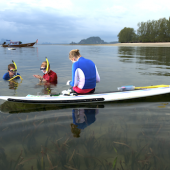
Understanding how we live (culture) and its impact on where we live (ecology) is one of the key issues facing sustainability and sustainability education. The International Sustainable Development Studies has developed a study abroad program for American college and university students in Thailand, “People, Ecology and Development” to address these issues through experiential studies of sustainability. Courses each semester focus on understanding the broader challenges of sustainable development through experiential studies of specific landscapes and cultures in the villages, mountains, coasts and islands throughout Thailand. This paper examines the key components of ISDSI’s programs, and provides a framework for understanding how these principles can be used to teach about sustainability within the broader context of issues of social justice and global learning more generally. Key components of the ISDSI approach include: community based learning — working with local communities to design courses that reflect community needs, knowledge and struggles; place-based learning — examining both the culture and ecology of specific locations, watersheds, bioregions, island archipelagos, etc.; experiential learning — learning through direct examination of and participation in the cultural practices (lifeways, norms, etc.) and study of ecological components (forests, coral reefs, etc.); and expedition based — learning during focused expeditions through the landscapes being studied, usually human powered (backpacking through remote mountain forests, sea kayaking between islands, etc.).
Continue Reading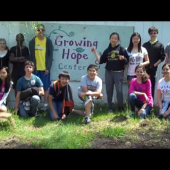
This article presents a case study of a middle school project based on the experience of two teachers and an administrator. The project gives 8th grade students an opportunity to make a difference in the world through a Sustainability Action Project. In this article you will read the rationale behind this project. You will get an overview of and a timeline for its implementation over the course of a complete academic year. We will provide you with some examples of projects as well as refer you to our school webpage where you can view these projects in more detail. Finally, we have included appendices of several of the materials we provide to our students. We hope that you will clearly see what sets this learning experience apart from other sustainability projects, and that you will be able to adopt a similar project in your school.
Continue Reading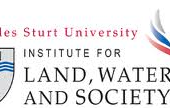
PDF: Rafferty and Laird, Spring 2013 Abstract: This paper explores the observations and perceptions of school children as they engage with nature through place based environmental experiences. The paper reports on two projects, one based in the USA and the other in Australia, designed to promote understanding of sustainability through outdoor […]
Continue Reading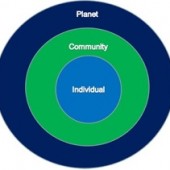
To most individuals, sustainability means environmentalism. This unfortunate approach to the current global crisis has ignored a more realistic systems approach, that sustainability includes social, cultural, economic, individual, and technical components. Even more tragic is our inability to align our very admirable values related to sustainability with our demonstrated and often
unenlightened self-interest and partisan selfishness, for it is individual behavior that creates the foundation for action in all other contexts in sustainability and potentially guides our ability to work with one another to make life-affirming decisions. This paper addresses the tragic gap between what we profess to value and the collective behaviors we demonstrate.
Continue Reading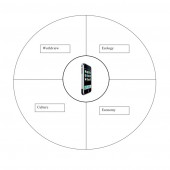
As a professor of undergraduate media studies, I have attempted to bridge media education and ecoliteracy by developing an experimental media education approach called Ecomedia Literacy. The framework attempts to balance the strengths of media studies with the concerns of education for sustainability. This paper documents a specific case study in which I introduced sustainability themes into an undergraduate digital technology and culture course by using the Ecomedia Literacy framework.
Continue Reading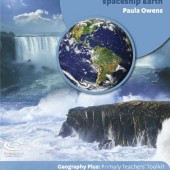
In this succinct and informative review, Shelby Gull Laird provides a good overview and solid recommendation for the comprehensive package of sustainability education K-12 curricular materials about geography—from a local to a global level—available from the UK Geography Association.
Continue Reading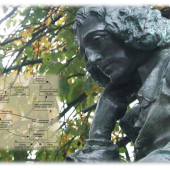
Abstract: By its nature and scope, the concept of sustainability is a challenge to traditional education. Where most academic institutions still value and promote narrowly conceived fields of expertise, sustainability requires a comprehensive, wide-angle approach to problem definitions as well as solutions. This challenge highlights the need for a bold reassessment of a number of epistemic assumptions; one of them being the validity of the Baconian-Cartesian reductionism at the core of the scientific method. This paper presents a novel, non-reductionist approach to understanding and teaching sustainability grounded in an analogy from the systems philosophy of Baruch Spinoza (1632-1677). This approach is an alternative that transcends the traditional dichotomy between reductionism and holism in their various forms. I discuss how Spinoza’s approach to parts and wholes can be applied to a transdisciplinary, systems-based sustainability education addressing systems of varying size and complexity. A multitude of systems theories and methodologies have failed in the role as widely accepted and used meta-languages that effectively transcend disciplinary confines. As applied in this paper, Spinoza’s philosophy can effectively be used as such a discipline-transcending facilitator of understanding. To my knowledge, Spinoza’s fundamental contributions to the philosophy of systems and transdisciplinarity presented in this paper have not been recognized in the literature, including the research on Soft Systems Methodology and other “constructivist” systems approaches.
Continue Reading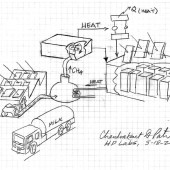
Teaching sustainability invariably involves teaching about energy – its use, its sources, its
environmental impacts, and its social implications. This paper explores how one renewable
energy alternative – biogas – is adapted and applied across scale and culture. Biogas is made by
capturing the methane released during anaerobic digestion of organic matter such as manure,
sewage, and food waste. In Nepal, biogas is a household scale technology used to create a
cooking fuel that replaces firewood and improves both environmental and human health. In the
United States, biogas is used as part of large-scale waste management systems for livestock,
wastewater treatment, and landfills to create electricity for on-site use and for sale into electric
grids. In Sweden, biogas is used as part of a regional effort to reduce greenhouse gas emissions
and fossil fuel usage by using locally generated biogas for district heating, electricity, and
vehicular fuel. By comparing these three cases, we gain insight into how one technology is
adapted across diverse needs and from household to regional scales in the pursuit of more
sustainable energy practices. Such an exercise can be an asset in the classroom to teach students
about the importance and relevance of place-based solutions that address diverse cultural and
economic realities.
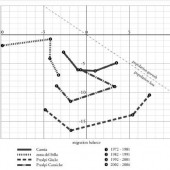
Abstract:
Amenity migration involves people moving to perceived desirable regions, usually for non-economic reasons, such as a physical or cultural environment that is seen as more beautiful, tranquil or inspirational than their current, usually urban environment. the Italian Alps and Chilean Andes have recently experienced significant amenity in-migration after decades of net population decline. Whereas amenity migration in other parts of the Alps, and the Americas is well-studied, here we represent some of the first demographic data, and also cultural-geographic analysis, comparing these two regions. In many respects, the two regions are similar, including the socio-economic situation of existing population and the principal reasons that amenity migrants arrive. IN both regions, perceived beauty and tranquility of the natural mountains environment is the main attraction for amenioty migrants. In addition, migrants come to experience a different cultural milieu that thy perceive as less stressful than the usually urban environments that they emigrate from. In the Italian Alps, close proximity to urban areas bring more day migrants, and the longer cultural history of teh region has led to more conflicts of values between amenity migrants and long-term residents than is seen in the relatively culturally young Chilean Andes.
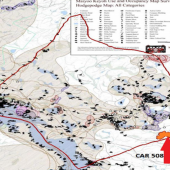
Effective bases of environmental decision-making build upon multiple and divergent understandings of landscapes and landscape connection. This paper develops ‘ethnogeomorphology’ as a tool for developing a shared (if contested) landscape platform for sharing worldviews and perspectives. Interfaces of intercultural communication, particularly with many Indigenous knowledges, are spaces of crucial juncture in understanding challenges of environmental and social sustainability and their relevance extends far beyond only ‘Indigenous studies’. Methodologies that aim to empower many Indigenous communities in documenting their knowledges can fail when attempting to communicate them in terms of conventional cause-and-effect science based on assumptions of linear and static spatial perspectives. This paper documents one such failure in practice with the Maiyoo Keyoh in Canada, and draws upon research conducted with the Yorta Yorta Nation (south-eastern Australia), the Stò:lō Nation (British Columbia, Canada), the Maiyoo Keyoh (northern British Columbia) and the Tia Kina Te Taiao (in New Zealand), from 2007-2011. Emerging insights in geography offer critical insight in addressing some of these challenges in practical ways, as increasing unrest in ‘physical’ disciplines (such as geomorphology), contest traditional binaries between ‘physical’ and ‘human’. This paper argues that geomorphic landscapes themselves are good learning tools that illustrate dynamic time-spaces. Recent developments around concepts of emergence, contingency and complexity, addressed through system-specific applications, point to reengagement with ‘place’. Similarly, conceptual developments in human geography see concepts of “scale as relation” rather than ‘scale as level’, also offers synergistic perspectives with physical geography founded on seeing multiple scales simultaneously. This solid grounding of coherence in geography could contribute to a practical and grounded basis of sustainability. Rather than being limited to theoretical debates, this paper illustrates the potential of a hybrid geography in practice. This convergence/hybridity in perspectives is not a conflation of knowledges, but an opportunity for situating worldviews in dialogue, assisting efforts to decolonize intercultural communication and promote ethical engagement in practice. This ‘ethnogeomorphic’ perspective offers a reconsideration of the term ‘adaptive’ in ‘adaptive management’, framed around multiple connections to landscapes, rather than as a tool restricted to Western science.
Continue Reading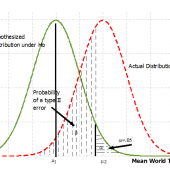
Dave Tomkins and Panagiotis Tsigaris focus their fine analytical stats skills on how to not to make the wrong kind of error…yes, that should be the right logic…regarding global warming. They elegantly lay out the math behind what we all know intuitively…nothing is to be lost from taking precautions regarding global warming, or avoiding Type II statistical error, which comes, not from assuming that humans caused global warming, even when we didn’t, but rather being unable to prove that humans cause global warming, when in fact we are causing it. They present the statistics in the context of a course case study and make it clear that we have no reason to wait on the data since the potential for this type of error is already with us and the actions to be taken are probably beneficial in other areas as well.
Continue Reading
Sponsoring the Journal of Sustainability Education The Journal of Sustainability Education is actively seeking partners, sponsors, and donors to collaborate on moving the field of sustainability education outward and deeper. The Journal is a premiere publication with dynamic content: a blend of peer reviewed and timely interviews and media pieces that draws 700,000 web views per year. […]
Continue Reading
In this wide-ranging interview, author and professor Stephen Sterling brings forth a good case for how academic can work to see collaborations that bring policy into practice, especially at a local level.
Continue Reading
In this clarion call for broad-based change in the way buildings are designed and built and occupied, Papesch and his colleagues bring attention to the broad swaths of society that are involved in this fundamental aspect of our daily lives. While bringing into play diverse groups of lay people and professionals, from poets to engineers, with a focus on architects and designers, they call for changes at every level, from the development of a Green Mindset among the population at large, to local governmental code changes to, as they argue most importantly, fundamental changes in design curricula that lead to the primacy of an interdisciplinary approach to climate change mitigation in building design.
Continue Reading
Nichols and Adams show how central design must be to sustainability by showing the numerous ways and multiple disciplinary perspectives that allow sustainability to be incorporated into the design curriculum. The program described goes far beyond a nod to “green building” technologies and shows how design is at the root of the ecological, economic, social and transformational aspects of sustainability.
Continue Reading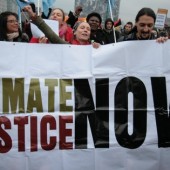
In this insightful review of Brian Tokar’s book, Randall Amster hails the work as a hopeful response to climate change that, rather than playing off of apocalyptic scenarios, envisions a future where society is re-structured not only in technological and economical terms, but also towards a more socially equitable way of life.
Continue Reading